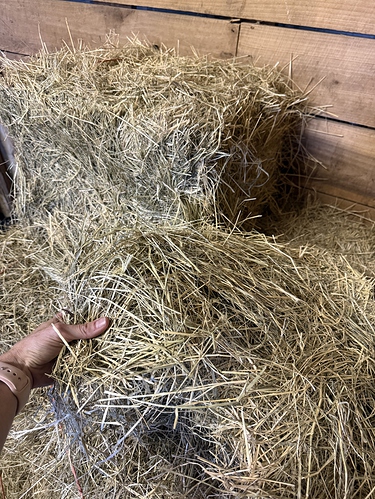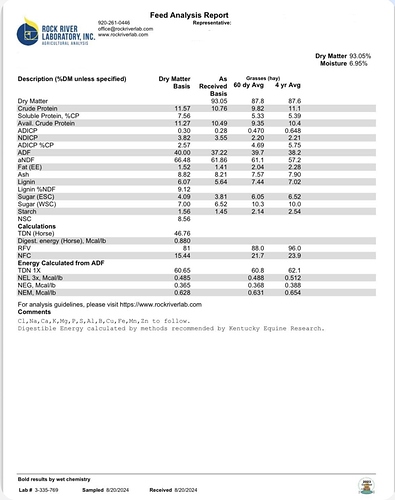I haven’t logged on in a pretty long time but wanted to jump on and share my unfortunate recent experience because I just haven’t seen much online and really wanted some frame of reference for others in case they find themselves in the same spot.
My 8 year old Morgan gelding is currently at Alamo Pintado recovering from a small colon impaction which presented last Saturday. Because of the diarrhea he was also experiencing, my boy was rushed into an isolation stall until they could rule out salmonella, et all (which fortunately days later, all tests were negative). Vet felt small colon impaction upon rectal and laid out the situation so I would be prepared. Fortunately, he passed much of the impaction within that first 36 hours on IV and q8 NG fluids. He’s still recovering, with fever fluctuations, which are now being attributed to jugular thrombosis he developed at his catheter site. But he’s at the right place for the supportive care he needs during this time. Ice boots and treatments to mitigate all potential concerns. We are so fortunate to be 40 minutes from Alamo. I’m hoping things continue to move in the right direction but I am still so very worried for my boy.
Though we haven’t been able to yet pinpoint what was the catalyst for this, one of the possible causes to the original impaction that his treating veterinarian brought up was the teff hay diet he was on. Morgan=Air Fern, and I had transitioned my boy to a mostly teff diet over that last year and a half, with hay bags in front of them 24/7 both in stall and at turn out. I started off feeding a mix of teff and grass hay and then within the last couple months, he was almost 100% teff (outside of Timothy pellet mash at night with his salt, flax, and ration balancer). My older guy gets alfalfa and orchard at meals with teff as a constant option, so my Morgan sometimes cleans up what my older guy spills and doesn’t finish. Mine are out in individual dry lot paddocks during the day (swapped EOD) and come into their own stalls at night. He’s a really good drinker, teeth done every spring, quality hay, UTD on everything, and moving during the day. All the things I had read that put them at risk for small colon impaction, he didn’t fit those categories (though I know sometimes things just happen and no one knows why…because horses).
Since she mentioned an all teff diet can be associated with small colon impaction, I just wanted to throw it out there so others may be aware. I wasn’t and I feel like I am pretty on top of things when it comes to my horses. I am feeling like I failed here and maybe put my guy at risk. I had even consulted with a vet nutritionist when I moved my boys home just to have some peace of mind about my plans moving forward. I had always heard about coastal potentially being tied to impaction, but in my research since, I am only finding a very small handful of mentions of a similar association with teff. The treating veterinarian mentioned it is something they see at their hospital, so not sure if it is regional or if teff just isn’t fed enough compared to the other hay types to elicit stronger associations. She did mention that if feeding the teff, it is safer to feed it at less than 50% of the overall forage diet (which is comparable to what I have heard about coastal).
I don’t want to fear monger anyone at all, but I since I wasn’t seeing anything online discussing this issue, I just thought I would throw a post up so anyone else researching in the future may stumble across it and it may help them. He was eating the teff for a year and a half before we had an issue, but he also was not on 100% until probably the last 2-3 months. I am sure plenty of people feed it at 100% and never have a problem. It’s a really great hay option and readily available where I am in CA. Now I am so gun shy about it, I am burning the bales I have left in small feedings (not to him) and replacing with Timothy moving forward. None of mine are IR, so I do have options to switch things up. And I also know that we still don’t know for sure if the teff was the actual catalyst for this event. Like I said, not trying to fear monger, just bring awareness.
Thanks for reading if you got this far. If you are reading this in the future, I hope you find positive outcomes for your current situation.





